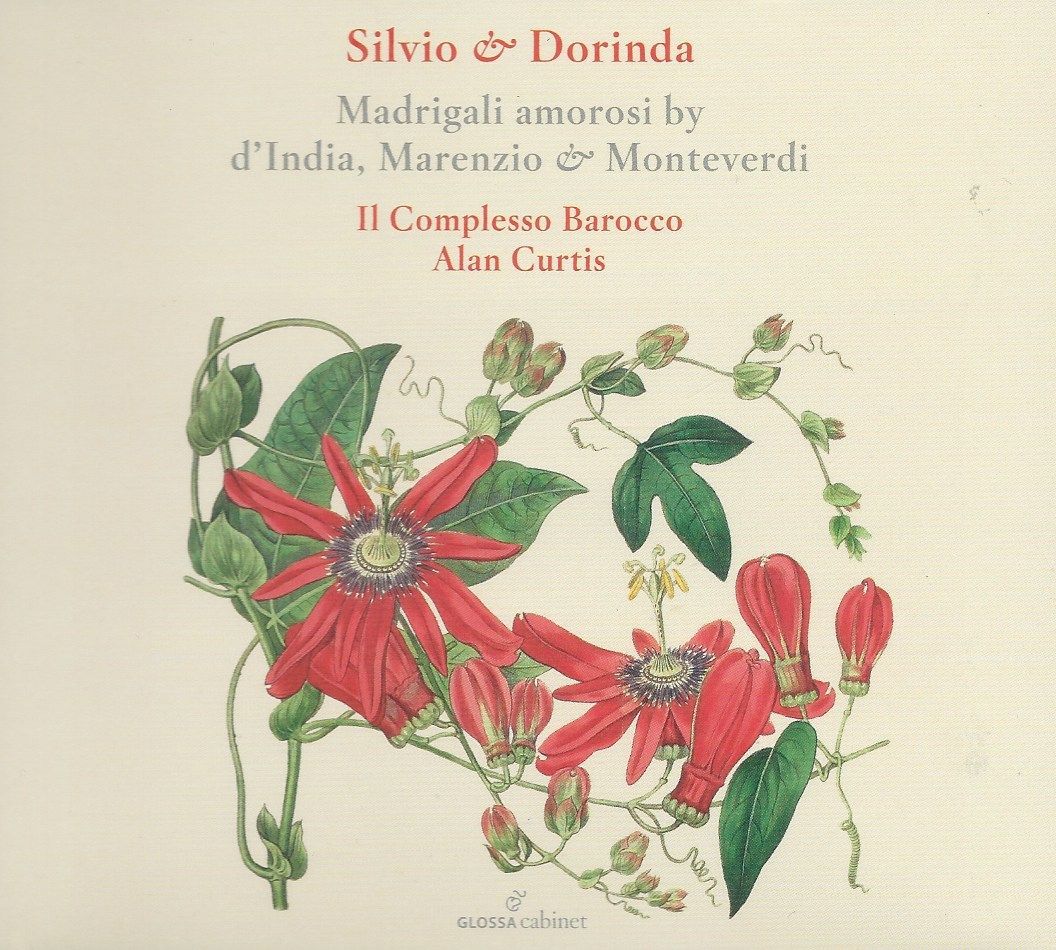Silvio & Dorinda: Madrigali amorosi by d'India, Marenzio and Monteverdi
Encased in the shell of an hour is some of the most glorious vocal music there is

This is a beautiful idea: responses by three major composers of the same scene in myth, that between Silvio and Dorinda from the tragicomedy by Guarini, Il pastor fido. It is inevitable that we meet Monteverdi here; less known is Luca Marenzio (c. 1553-1590), but for me the real "explorer" part of this disc is the music of Sigismondo d'India (c. 1582 - 1628/29). All three composers were flourishing when they wrote these pieces: encased in the shell of an hour is some of the most glorious vocal music there is.
It's been a good Summer for madrigals, thanks to the Voces8 online Festival, with an all Monteverdi programme from I Fagiolini and Voces8's own performances of Monteverdi madrigals from Book VI in their programme. So it's time to look around a little, perhaps journeying first to Palermo for d'India's Il pastor fido. This isn't purely vocal - Il Complesso Barocco includes, as well as the complement of voices (two sopranos, countertenor, two tenors and bass) two violins, cello, triple harp and theorbo. The sound is glorious, whichever way you look at it; and frew performances capture the core of d'India as here: his disjunct, daringly fragmentary way. Try "Ferir quel petto Silvio?" (the different cover is from the disc's first release, but it's the same performance: it was recorded in 1993):
This disc positively begs us to make comparisons, and not just between the Pastor fidos. d'India's short setting of Or che 'l ciel e la terra is directly next to Monteverdi's far more expansive one. Here's the Monteverdi byhe t same performers, a feast of velvety richness:
Comparisons between d'India, Marenzio and Monteverdi are indeed fertile. After the magnificently raw d'India, the fragile sophistication of the setting by Marenzio in his Il pastor fido acts like the gentlest of sorbets, the soprano voice of Caterina Trogu-Röhrich floating beautifully above the group. It's a real lesson in less is more: the dissonances of the final "Amina cruda" carry all the more weight because of the preceding gentleness.
Finally, Monteverdi's Il pastor fido. Alan Curtis suggests a correlation between Monteverdi's and Marenzio's settings of the line "Di voi lodar non vendicar mi voglio," Monteverdi paying homage to his compositional colleague. There is no doubting the characteristic freshness of Monteverdi's writing and its realisation here, a symphony of beauty.
My only complaint? Texts are given in Italian only in the booklet (but are easily locatable elsewhere); but Alan Curtis' informed commentary almost makes up for it. But there's plent of love's anguish here: the story of Silvio and Dorinda is tragic. Silvio mistakes Dorinda, who has been persuing Silvio in love unsuccessfully, for a wolf (it's complicated ...) and shoots her with his bow and arrow; the point is the shooting awakens Silvio to compassion. The three composers' exploration of the shades of love are as compelling as they are different.
